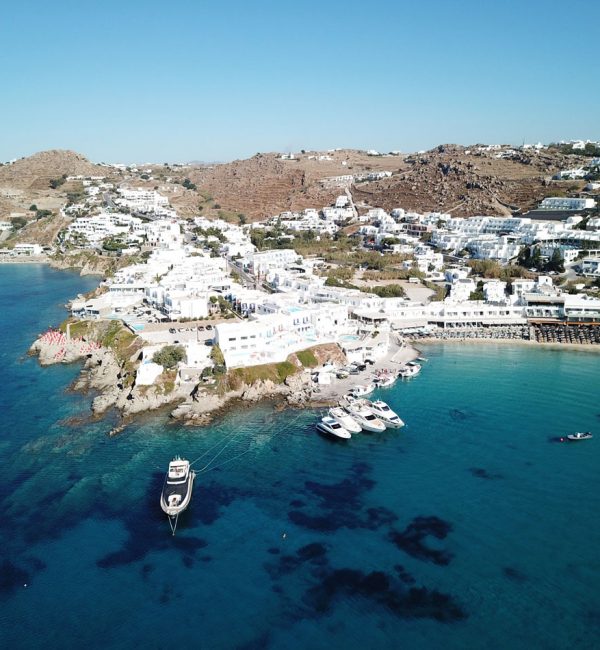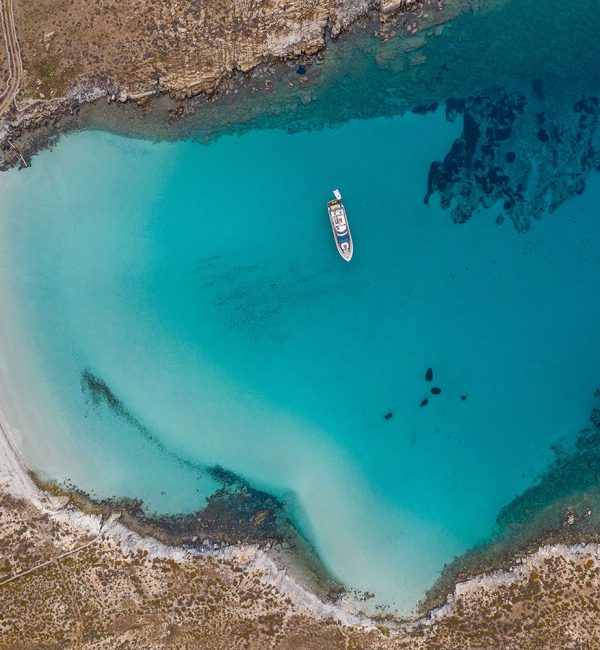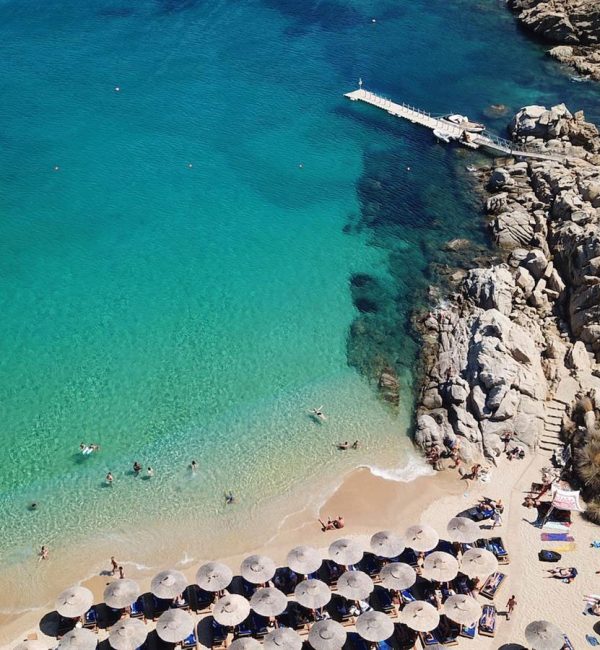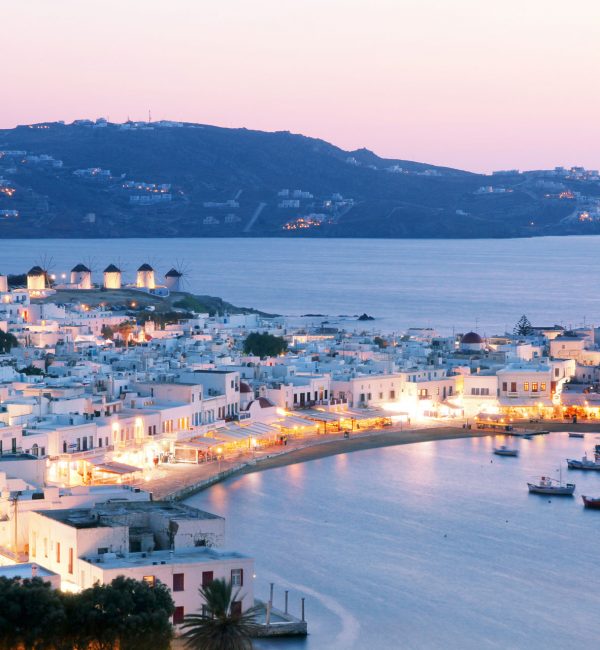Delos & Rhenia History
Delos & Rhenia islands are a place of not only impeccable beauty but also rich history!
Delos is part of the world’s cultural heritage
The island of Delos is a major sacred site for the Ancient Greeks, second in importance only after Delphi.
According to mythology, Delos was revealed to Leto among the waves of the Aegean Sea. Leto, who was being chased by the jealous wife of Zeus, Hera, was banished not to find a place on earth to deliver Zeus’ children. Poseidon, took pity on her and provided Delos as a place for her to give birth to Apollo and Artemis.
On Delos are found the admirably well-preserved ruins of one of the largest, most significant, and best- organized ancient Greek settlements.
The island was first settled, probably by the Kares, about the 3rd millennium B.C. At the beginning of the 8th cent. B.C. it developed into a center of worship and was the capital city of an amphictyony of Aegean island.
At the end of the 6th cent B.C., the tendency of the Athenians was to take over the island. IN 540 B.C. Peisistratos ordered the first purification of the sanctuary. As a result of the second purification (426 B.C.), the entire contents of all the islands’ graves were removed to neighboring Rhenia. Afterward, in order to prevent the desecration of the sanctuary, both births and deaths were forbidden on the island of Apollo.
From prosperity to the fall
The Athenians consecrated the first “Delia” dedicated to Leto, Artemis, and Apollo. In 315 B.C., when Macedonians arrived on the island, Delos achieved its independence and developed commercially.
During the Roman period, the island thrived, until 88 B.C. Till that time the island had a population of 30,000, which included foreigners from as far away as Rome, Syria, and Egypt.
Each group built its own shrines and lived in relative harmony despite their differences. By Roman times, the island’s commercial role exceeded its previous religious importance.
Then, after two dreadful attacks during the Mithridatic War, Delos went into decline. The majority of the population was killed or sold into slavery. The sanctuary treasures were looted, and the city was razed to the ground. The Romans partially rebuilt the city, but the revival was prevented by continuous pirate raids. In the following centuries, it was gradually abandoned.
In 1873 the French Archaeological School of Athens started excavations and restoration enabling the wealth of the island’s history to be revealed to everyone who is interested.
The Archaeological Museum of Delos houses one of Greece’s most significant collections in Greece. It includes a rare exhibit of ancient sculpture ceramic vessels, epigraphs, and wonderful mosaics, etc. The sites of Delos and Rhenia are under the protection of the Ministry of Culture; thus, both the mooring of private yachts there and staying overnight without official permission are strictly forbidden.
Delos & Rhenia are both a floating arc of history, and undoubtedly an important part of the Mykonian tradition. So if you are a history enthusiast there is no better place to spend your day when visiting Mykonos. Join now our private day cruise to Delos & Rhenia and discover an amazing world that combines perfectly history with natural beauty!

 Mykonos Yachting
Mykonos Yachting




